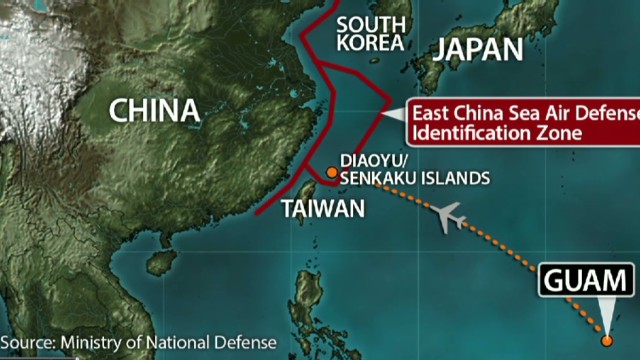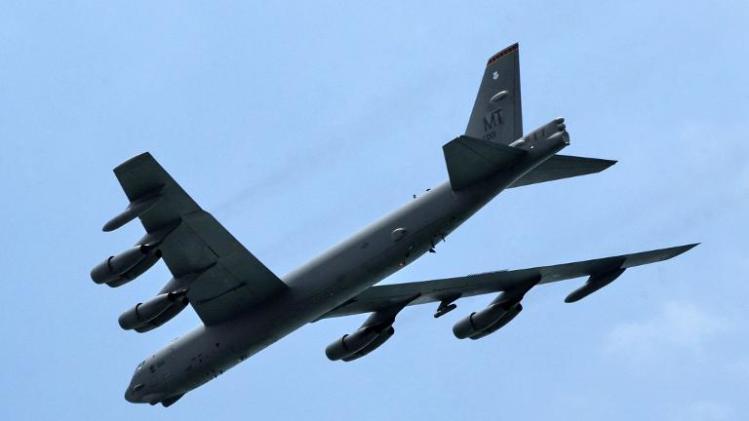The U.S. moved forcefully to try to counter China's bid for influence over increasingly jittery Asian neighbors by sending a pair of B-52 bombers over disputed islands in the East China Sea, U.S. officials said Tuesday.
The B-52s took off from Andersen Air Force Base in Guam and flew more than 1,500 miles northwest, crossing into what China has declared as its new air-defense identification zone, at about 7 p.m. ET Monday. The U.S. deliberately violated rules set by China by refusing to inform Beijing about the flight, officials said.
China had warned of military action against aircraft entering the zone without notification, but didn't respond to the B-52s, which weren't armed and were part of a long-planned military exercise. A U.S. official said there was no attempt by the Chinese military to contact the B-52s. "The flight was without incident," a U.S. official said.
Wednesday morning, in Beijing's first public comment on the flight, the Ministry of National Defense said in a faxed response to The Wall Street Journal that the Chinese military monitored and identified the U.S. aircraft. It also said that China would identify all aircraft entering the zone and has the capability to exercise "effective control" of the zone.
The ministry said the U.S. military aircraft had flown on the eastern edge of the new Chinese zone, about 120 miles from the disputed islands.
By challenging a direct military warning, the U.S. flight risked a potentially destabilizing response by the Chinese. But the move also may have calmed tensions in the region by reassuring U.S. allies and keeping tempers in check in Japan, South Korea or other countries, Pentagon officials and defense analysts said.
The U.S. test was the outgrowth of months of growing tension in which China and its smaller neighbors have been jostling for control of waters with plentiful fishing stocks and potentially rich hydrocarbon reserves in the East China Sea and South China Sea.
Beijing and Tokyo have competing claims to a group of islands in the East China Sea, and China moved over the weekend to solidify its standing by declaring the air-defense zone, which encompasses the disputed islands, requiring aircraft to report in before entering the zone.
The U.S. and key Asian allies, including Japan and South Korea, criticized the requirements as a power grab by Beijing, and the Pentagon vowed to show it wouldn't be bound by them.Read the rest of the story HERE and view related videos below:
If you like what you see, please "Like" us on Facebook either here or here.
Please follow us on Twitter here.
Please follow us on Twitter here.





No comments:
Post a Comment